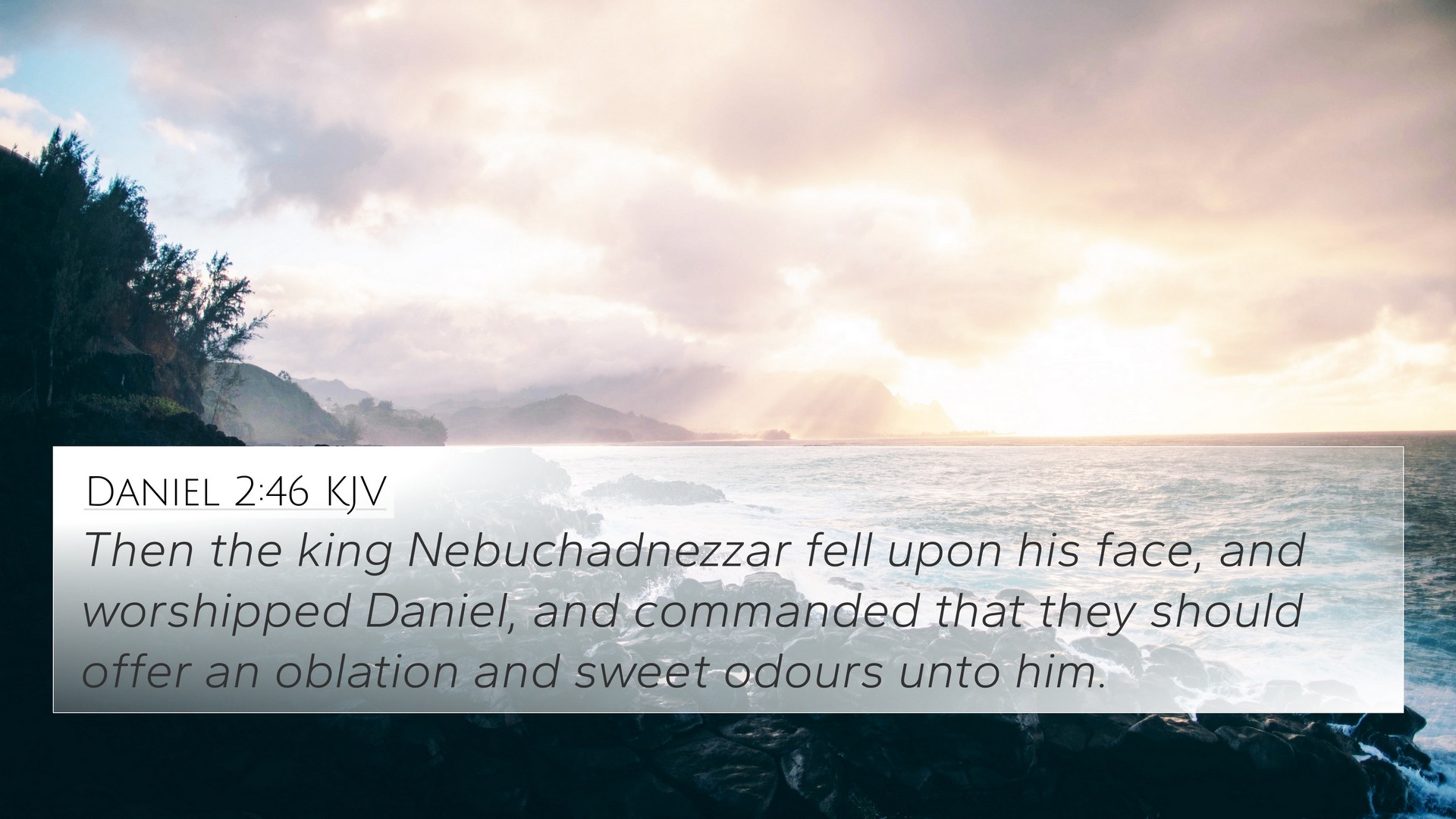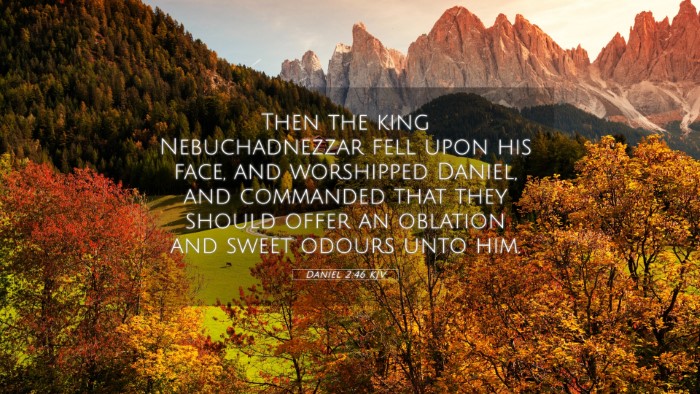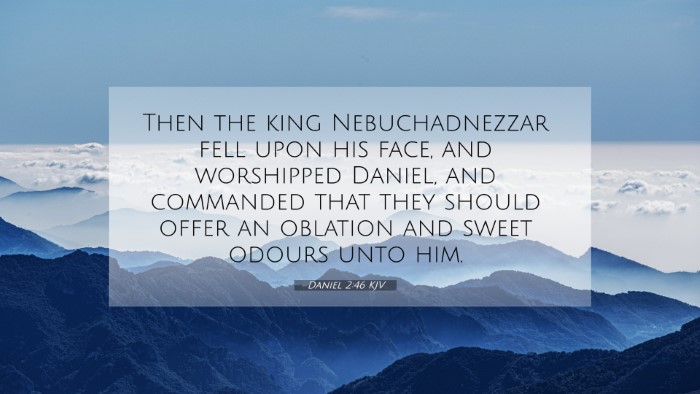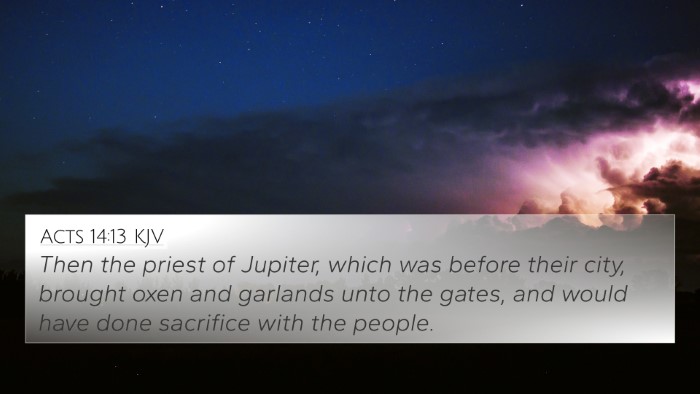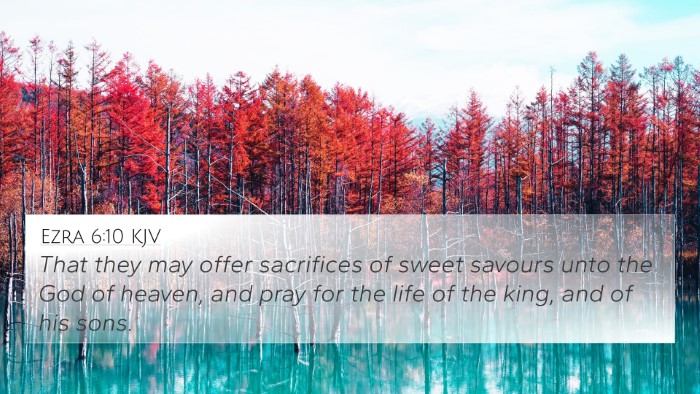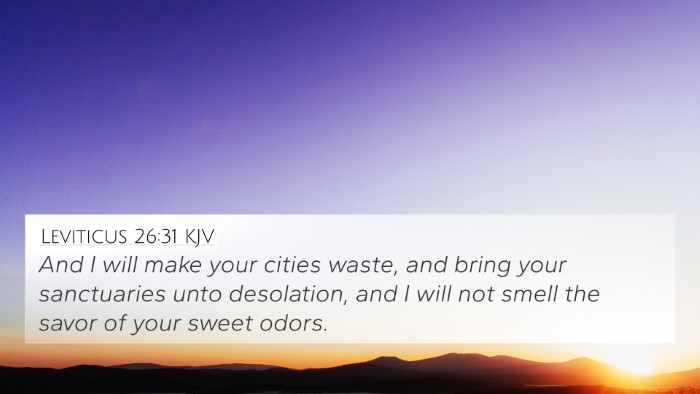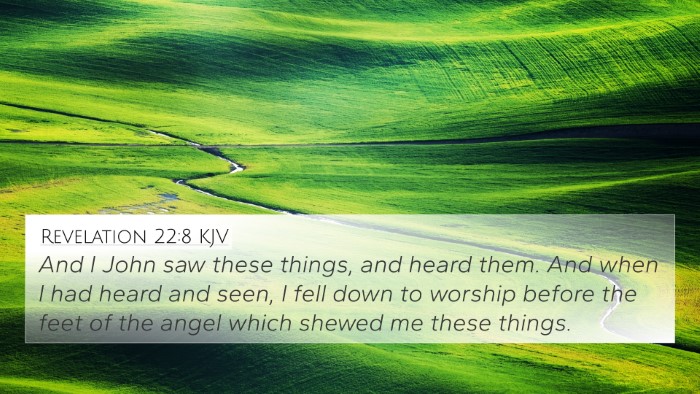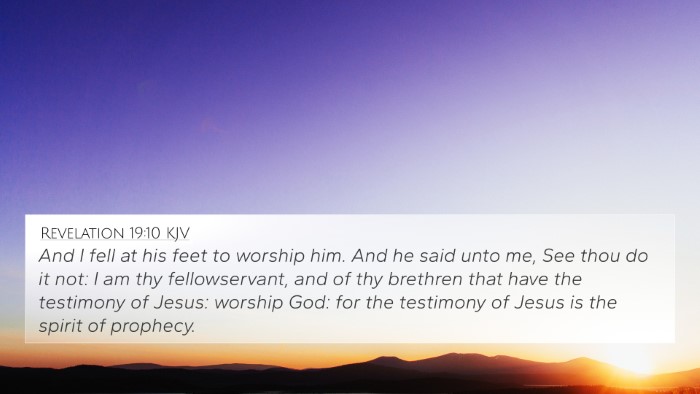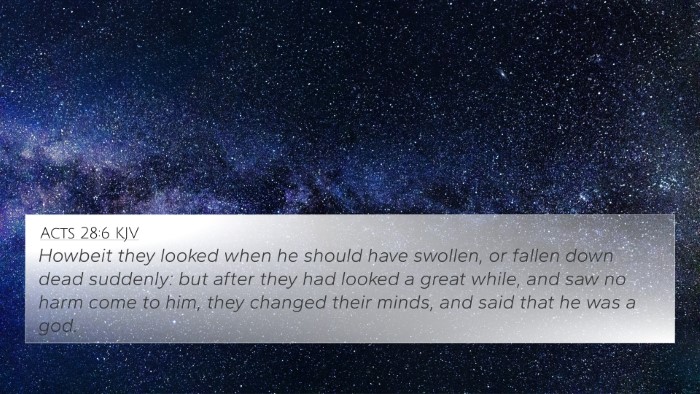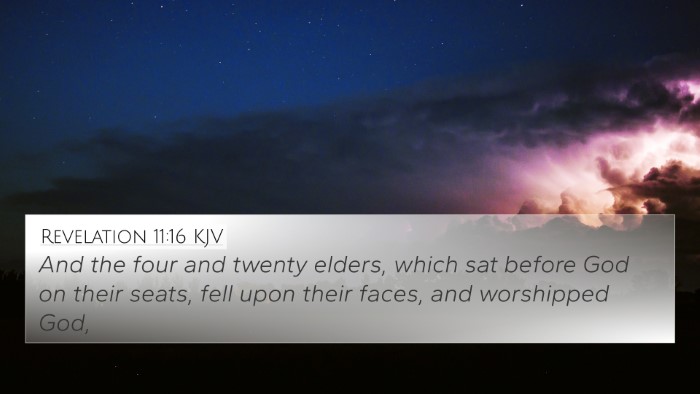Understanding Daniel 2:46
Daniel 2:46: "Then the king Nebuchadnezzar fell upon his face, and worshipped Daniel, and commanded that they should offer an oblation and sweet odours unto him."
This verse marks a pivotal moment in the book of Daniel, illustrating both the recognition of divine wisdom and the dangers of misplaced reverence in the context of Babylonian polytheism. The reaction of King Nebuchadnezzar to Daniel's interpretation of his dream reveals several profound theological and practical insights.
Significance of Nebuchadnezzar’s Worship
When the king fell on his face and worshipped Daniel, it emphasizes the immense impact of God’s revelation through Daniel. This act indicates the recognition of Daniel as a prophet, suggesting that the interpretation of dreams was not merely a human endeavor but a divine message:
- Matthew Henry: Henry notes that this shows the power of God working through His servants to reveal truth.
- Albert Barnes: Barnes points out the absurdity of worshipping a human being rather than the One who empowered him to interpret the dream.
- Adam Clarke: Clarke highlights the king’s misplaced gratitude, suggesting that reverence should be directed to God who gave the insight, not simply to the messenger.
Theological Implications
This verse serves as a rich source for Bible verse cross-references and thematic Bible verse connections:
- It connects to Exodus 20:3-5, where God commands worship only for Himself.
- Acts 10:25-26 provides a New Testament parallel where Peter refuses to be worshipped, calling attention to God instead.
- Revelation 19:10 further emphasizes the danger of worshipping created beings over the Creator.
- Isaiah 42:8 asserts that God will not share His glory with another.
Cross-Referencing Related Verses
Some related Bible verses that relate to this theme include:
- Daniel 1:17 - highlights Daniel's wisdom received from God.
- Proverbs 2:6 - teaches that wisdom comes from the Lord.
- 1 Corinthians 2:12-13 - speaks of revealing spiritual truths through the Spirit.
- James 1:5 - encourages asking God for wisdom.
The Nature of Authority and Prophecy
The dynamic illustrated through this event portrays the need for understanding the authority in prophetic messages:
- This incident showcases inter-Biblical dialogue where kings and prophets interact (e.g., 1 Samuel 28 with King Saul and the Witch of Endor).
- It can also be framed within the context of kings acknowledging God's sovereignty, much like in Psalms 2:10-12.
Misdirected Worship: A Cautionary Tale
While the king's act of worship reflects reverence, it also serves as a caution against idolatry:
- Matthew Henry warns that such acts can lead to an improper focus on the created rather than the Creator.
- Albert Barnes discusses how Daniel's example teaches humility despite recognition.
- Adam Clarke points out the challenge of navigating human recognition and divine glory.
Concluding Reflections
This examination of Daniel 2:46 through various commentaries underscores the complexity of divine revelation and human response. It invites readers to explore the connections and parallels in scripture, enriching one's study through cross-referencing Biblical texts. For further study, one might consider tools for Bible cross-referencing and methodologies for understanding the themes presented in the prophetic literature.
